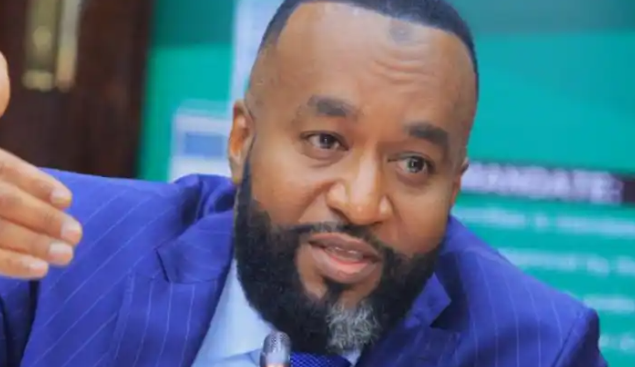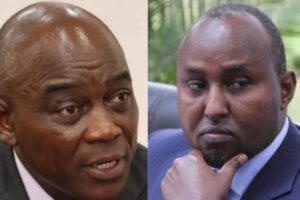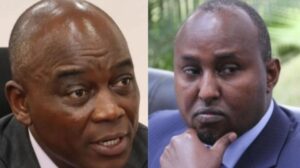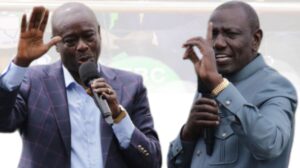Hassan Ali Joho, Kenya’s newly appointed Mining Cabinet Secretary, believes that the country has enough minerals that, if properly exploited, could help it pay off a significant portion of its massive Ksh10.5 trillion debt.
Speaking in Taita Taveta County, during a meeting with regional law enforcement officers, Joho warned that in the future, state officers will be required to crack down on illegal mining.
The Cabinet Secretary warned that absconding responsibility would be dealt with quickly.
“Our officers from the different law enforcement agencies. How do you allow illegal mining to take place in areas you are manning,” the former Governor directed the official.
“So county commissioner, we start here in Taita Taveta, anyone engaging in illegal mining in this area, I am giving a directive, you take responsibility.”
Joho continued; “I won’t be cowed. I was given this responsibility and I must fulfill my mandate. You must help us deliver. Mining has a lot of opportunities.
“This country is currently saddled with debt. I am thinking one way the country can get itself out of the current debt crisis is to exploit our minerals so that we can get the funds to service our debt,” he stated.
Kenya’s mineral wealth is estimated to be worth more than Ksh 3 trillion, with major contributions from minerals such as titanium, gold, and soda ash.
Titanium, primarily extracted from the Base Titanium project in Kwale, generates approximately Ksh 14 billion in export revenue each year.
Gold mining, particularly in Western Kenya, is another significant contributor, with estimates indicating that it generates around Ksh 15 billion annually.
The soda ash extracted from Lake Magadi is valued at approximately Ksh 9 billion per year, making Kenya a major global producer.
The country’s untapped rare earth elements, discovered in areas such as Kajiado, are thought to be worth billions.
The mining sector accounts for approximately 1% of Kenya’s GDP; however, with continued exploration and investment, this figure is expected to rise.
Kenya’s public debt stood at Ksh10.54 trillion in August 2024.
Various stakeholders, including President William Ruto himself, have warned that Kenya must find alternative ways to finance its budget, arguing that continued borrowing is unsustainable in the long run.
“We must stabilise our public finances. This year, we will spend 60 per cent of our revenues to service our debt,” the President said after his inauguration in September 2022.
“We are faced with Sh600 billion in pending bills for goods and services supplied to the government. Clearly, we are living beyond our means. This situation must be corrected.”





















Add Comment